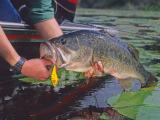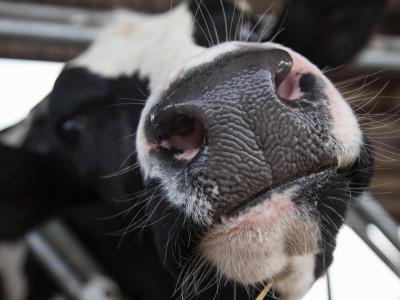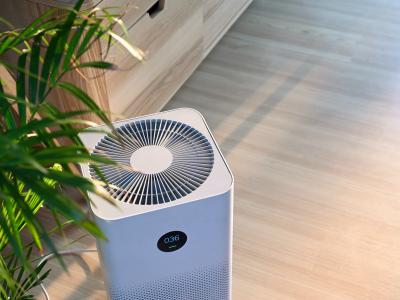Jan 21, 2009 (CIDRAP News) More than 125 products, including a few pet foods, have been included in recalls prompted by the nationwide Salmonella outbreak linked to peanut butter, and the list continues to grow, US officials said today.
Peanut butter and peanut paste from the Peanut Corp. of America plant in Blakely, Ga., regarded as the source of the outbreak, were distributed to more than 70 companies, said Stephen Sundlof, DVM, of the US Food and Drug Administration (FDA) said at a news teleconference today.
"We currently have more than 125 recalled products listed on the FDA site, and we expect that number to continue to increase as we continue to get more product information," said Sundlof, director of the FDA's Center for Food Safety and Applied Nutrition.
Consumer products recalled include cookies, crackers, candy, and ice cream. PCA does not sell peanut butter directly to consumers, and the FDA has said no national peanut butter brands sold in retail stores have been tied to the outbreak.
A few pet food products, including Great Choice dog biscuits, sold by PetSmart, are now included in the recalls, Sundlof reported. "There is risk to humans from handling these products," and people should wash their hands after feeding treats to pets, he said.
PetSmart said yesterday it was recalling seven varieties of Great Choice dog biscuits because they contain peanut paste from PCA, though it was not aware of any illnesses related to the biscuits.
The Salmonella outbreak has grown to 486 cases in 43 states and Canada, up one since yesterday, said Dr. Robert Tauxe of the Centers for Disease Control and Prevention (CDC). He said 107 people (22%) were hospitalized with salmonellosis, and the number of deaths possibly related to the outbreak remained at 6.
"More cases are being reported every day," Tauxe said. "The outbreak appears to be ongoing."
Officials also revealed today that Salmonella found recently in the Blakely facility did not match the outbreak strain of Salmonella enterica serotype Typhimurium. But they said other evidence, primarily the discovery of the outbreak strain in some PCA-made peanut butter in Connecticut, has clearly linked the outbreak to the Georgia plant.
Consumer advisory
PCA peanut butter is sold to institutions and food service companies, and the company sells both peanut butter and peanut paste to food processors for use in other products, the FDA has said.
Sundlof today repeated previous FDA statements that no major-brand retail peanut butter has been linked to the outbreak. But he also reiterated advice that consumers should check whether peanut butter or products containing peanut butter or paste contain PCA product. They can do that by checking a searchable list on the FDA Web site or, if the relevant product is not on the list, by checking the manufacturer's Web site or calling the company.
Sundlof said the FDA is tracing products at risk for contamination in two ways: by following products distributed from the Blakely facility to primary customers and on to any secondary and tertiary customers, and by asking food companies if any products they handle contain products from that plant.
He said firms that bought a "substantial proportion" of the Blakely plant's output are included in the recalls announced so far: "In terms of the overall volume of peanut butter and peanut paste that left the plant, we have under recall the major purchasers."
The FDA is not testing all the recalled products, but it is testing those that are most likely to yield a positive result if Salmonella is present, Sundlof said. For example, "We're picking up unopened containers from institutions where people actually became ill."
He said the outbreak and the growing list of potentially affected products "certainly points to the complexity of our food supply." He likened the situation to the melamine contamination found in pet food last year, "where two very small companies had a very large impact on pet food."
Salmonella in plant
In response to questions, Sundlof said the Salmonella isolates found in the Blakely plant recently "were not what I believe to be the same strain as what's causing the outbreak, but it still indicates there is Salmonella in the plant."
He said the contamination was found in a floor crack near a washroom and on a floor elsewhere in the plant.
Sundlof said good manufacturing practices should keep Salmonella out of food processing plants. "The fact that the strains don't match is not really relevant from a regulatory standpoint. Having Salmonella in a plant is not supposed to happen," he said.
He and Tauxe said that several lines of evidence point to the Blakely facility as the source of the outbreak, though the outbreak strain has not been found there.
The strongest evidence was Connecticut officials' identification of the outbreak strain in an unopened container of King Nut peanut butter, made by PCA, as reported yesterday, he said. About a week earlier, Minnesota officials found the strain in an opened peanut butter container from a nursing home where illnesses occurred.
Today, Tauxe said the CDC has gathered information from 15 institutions where more than one resident had salmonellosis. "We have detailed information from 14 of the 15, and in all 14, King Nut peanut butter [made by PCA] was served," he said.
He also said that a CDC case-control study conducted Jan 17 and 18 revealed a link between illness and consumption of peanut butter, and particularly the Austin and Keebler brands made by Kellogg Co. Kellogg recalled those brands on Jan 16, he noted.
Sundlof said the FDA is looking at the possibility that contamination could have happened somewhere other than in the Blakely plant, such as in a tanker container of peanut paste. But he added that the finding of Salmonella in the plant suggests that the contamination occurred there.
Peanut sources for PCA plant
The Blakely plant receives peanuts from both US and foreign sources, Sundlof reported. Some of the peanuts are received already roasted, while others are roasted at the facility, he said.
He added that the roasting step should kill any Salmonella present, if done correctly, suggesting that contamination would have occurred at some point after the roasting.
Sundlof also revealed that the last inspection at the Blakely facility was done by Georgia officials in June 2008, under a contract with the FDA. The last time the FDA itself inspected the plant was before the facility was producing peanut butter, he said.
In other comments, the two officials said peanut butter contains almost no water and therefore does not support the growth of Salmonella, but the bacteria can survive in peanut butter for a long time.
"When Salmonella is in something that's dry it can survive much more heat than when it's in something that's wet," said Tauxe.
See also:
CDC outbreak update
http://www.cdc.gov/salmonella/typhimurium/
FDA outbreak page
http://www.fda.gov/oc/opacom/hottopics/salmonellatyph.html
FDA database of recalled products
http://www.accessdata.fda.gov/scripts/peanutbutterrecall/index.cfm#Peanut%20Butter
Jan 20 PetSmart news release
http://phx.corporate-ir.net/phoenix.zhtml?c=196265&p=irol-newsArticle&ID=1246514&highlight=















